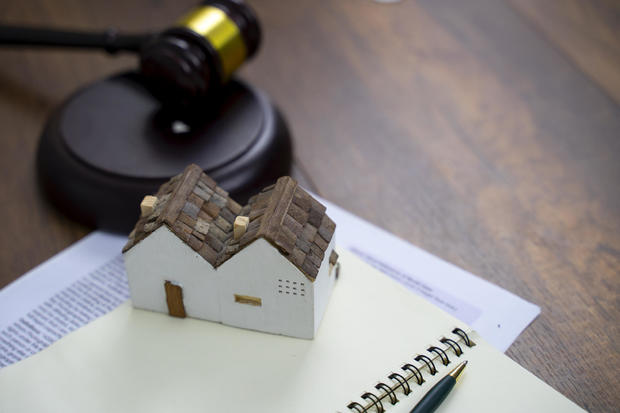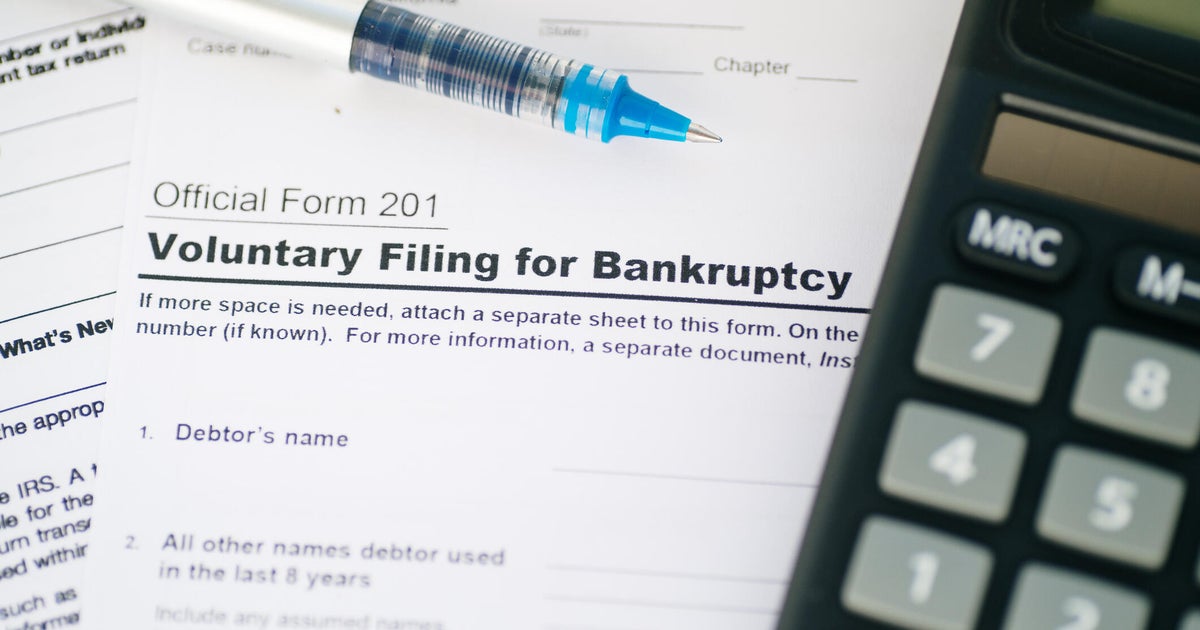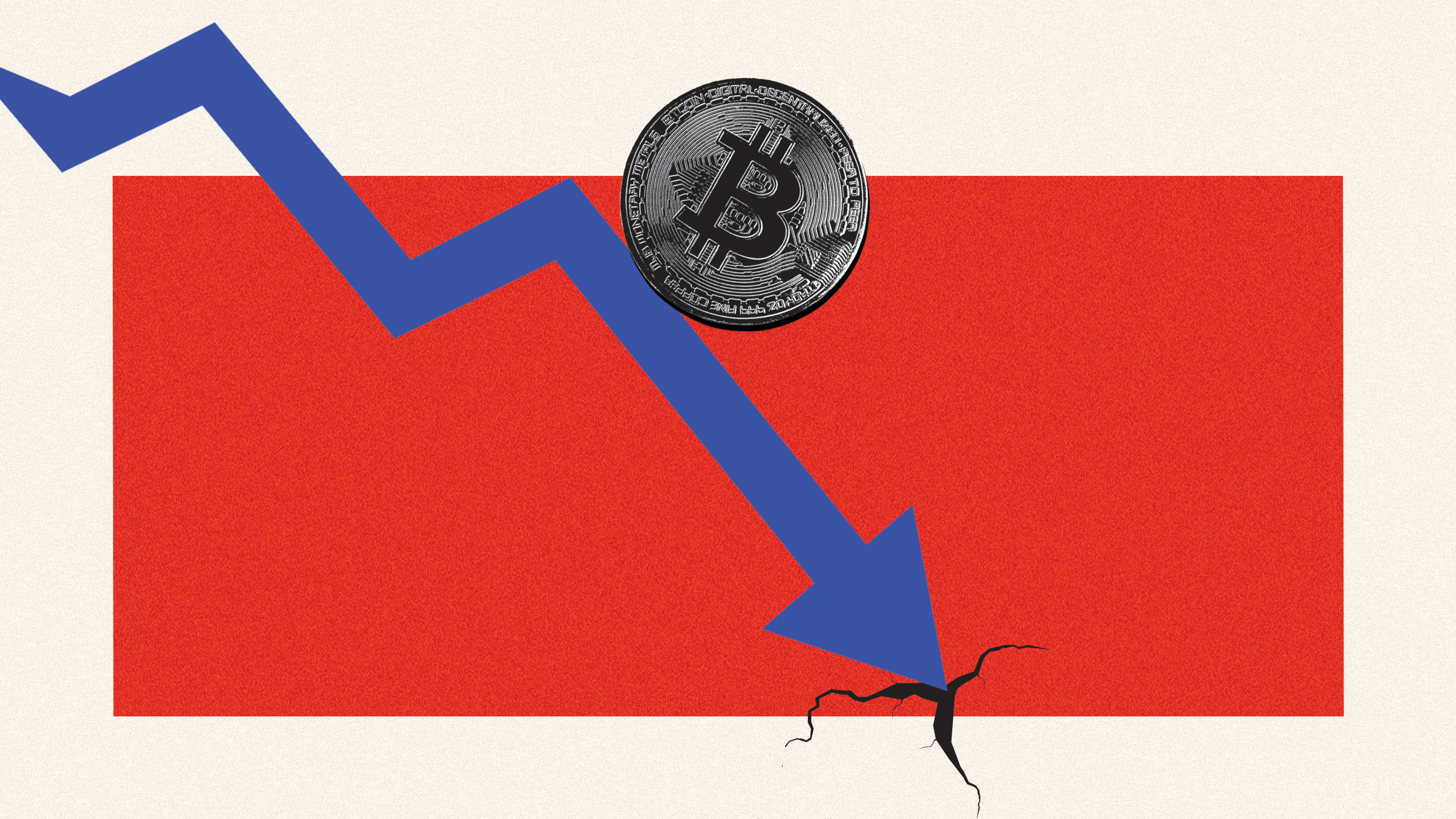What to know about getting a mortgage after bankruptcy
Debt levels have been on the rise recently, with total household debt in the U.S. climbing to $17.5 trillion by the end of 2023, according to the Federal Reserve Bank of New York. And, paying debt off has gotten more difficult for many, considering the effects of inflation and today's high interest rates are making both debt and the cost of living even more expensive.
When debt piles up past the point of control, some people turn to bankruptcy as a solution. In fact, there were nearly 500,000 non-business bankruptcy filings in 2023, up 16% from the year prior, according to data from the Administrative Office of the U.S. Courts.
However, bankruptcies don't always wipe the slate fully clean, and the short-term effects on your credit can loom large. Yet with enough time and effort, you can get back on track financially — even to the point of being able to take on substantial debt again, like a mortgage. But how exactly does that work?
Compare today's top rates and get pre-approved for a mortgage loan here.
What to know about getting a mortgage after bankruptcy
Here's what you need to know about getting a mortgage after bankruptcy.
Can you still get a mortgage after bankruptcy?
You might not be eligible for a mortgage right away after going through bankruptcy, but that's generally something you can build back up to.
"While a bankruptcy is a personal financial setback, it is not a disqualifier for getting a mortgage," says Christy Bunce, president at New American Funding.
However, qualifying for a mortgage after bankruptcy depends on several factors, such as the type of bankruptcy.
"If they filed for a Chapter 7 liquidation, which eliminates debts in exchange for allowing liquidation of any unprotected assets, it will generally take two to three years for a borrower's credit to recover sufficiently to qualify for a traditional mortgage. If they filed for and completed a Chapter 13 reorganization, wherein the debtor repays as much of their debt as they can afford to over a three- to five-year period, then their credit can recover in as little as one year," explains George Vogl, managing director at Stretto.
The type of loan also matters, especially if getting a government-backed mortgage that has more specific waiting periods.
"Lenders and loan investors set a minimum period of time — also called seasoning — between when the bankruptcy takes place and when a person would be eligible for a mortgage," says Bunce.
Typically, Fannie Mae and Freddie Mac loans require a four-year waiting period, while Federal Housing Administration (FHA) loans have a two-year waiting period after a Chapter 7 bankruptcy, she adds.
Chapter 13 bankruptcies, however, don't have the same requirements, Bunce says, "as long as you have a one-year payment history with no late payments and approval by the court."
Find out more about your best mortgage loan options now.
How does a bankruptcy affect mortgage qualification?
While you might be eligible for a mortgage after a given waiting period, the mortgage qualification criteria can differ following a bankruptcy, depending on the lender.
"Lenders may require a higher down payment to mitigate their risk, often ranging from 10% to 20% or more," says Jordan Leaman, branch operations manager at Churchill Mortgage.
In addition to potentially paying more upfront, your costs might also be higher because lenders may charge higher mortgage interest rates "than those offered to borrowers with clean credit histories," Leaman adds.
That said, you shouldn't assume that you have to take whatever mortgage rates come your way. While your options might be a little slimmer and more expensive after going through bankruptcy, you can still often find some lenders who are willing to work with you and offer a more reasonable interest rate range.
"The borrower should expect a higher than market interest rate but should be wary of any lender requesting substantially higher than market rates," says Vogl. "Similarly, there are a number of credit repair and credit rebuild providers who will solicit the recently discharged debtors with unrealistic promises and unreasonable fees for services."
How to improve your odds of qualifying for a mortgage after bankruptcy
While bankruptcy can make getting a mortgage more difficult, borrowers can often take steps that make them better mortgage applicants after bankruptcy.
For starters, "the borrower absolutely must address any debts that survive the bankruptcy and be in good standing on their payments. This is the most important factor that potential lenders will view," says Vogl.
You can also use the years it might take to become eligible for a mortgage to improve your financial situation.
"During the waiting period, it's important to focus on rebuilding your credit, including managing your finances responsibly, paying your bills on time, and keeping your credit balances low. Demonstrating sound financial behavior can help improve your chances of being approved for a mortgage," says Bunce.
The waiting period can also have some upsides, such as giving you more time to build up your down payment, which can help reduce mortgage rates that you'd otherwise face.
"Saving for a larger down payment can also strengthen your application, as it reduces the lender's risk. Additionally, engaging a mortgage broker who specializes in working with individuals with past credit issues can provide valuable guidance," says Leaman.
The bottom line
Although bankruptcy can make getting a mortgage more complicated, you can often qualify again after a few years. During that time, you can take steps like improving your credit score by consistently paying bills on time while also saving for a larger down payment. That can help you qualify for a better mortgage rate and reduce the overall amount you owe too.




